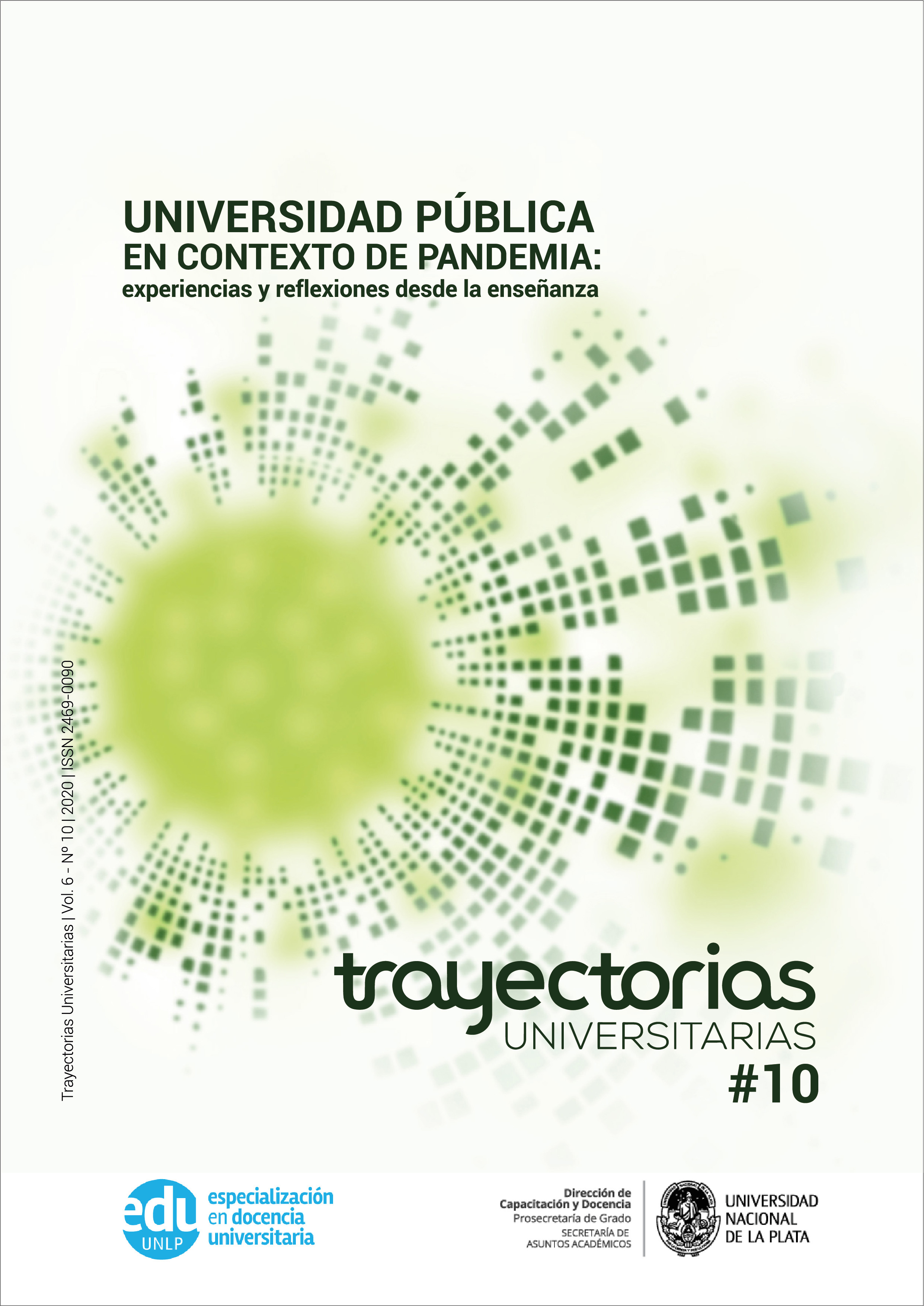Technological changes: questions and challenges of virtualized university teaching work in Argentina
DOI:
https://doi.org/10.24215/24690090e019Keywords:
teaching work - technological changes - university educationAbstract
This proposal is part of an investigation entitled "Technological changes: new challenges for labor relations and professional training" proposed and developed within the framework of the Scientific Research, Development and Transfer of Technologies and Innovations Program (CyTMA 2) of the University Nacional de La Matanza, whose main aspiration lies in characterizing how technological changes affect the field of labor relations, requiring the training of new skills in workers.
In this sense, as researchers, we proposed, when outlining the project, to focus on the actors in the world of work and the new skills they should acquire as a consequence of the technological changes and the new forms of employment that originate. More specifically, we seek to reconstruct the perspective of the actors in the world of work and the State associated with employment and training policies on technological and organizational change in labor relations and in the required occupational skills.
In Argentina, from the application of the Preventive and Mandatory Social Isolation (ASPO) decreed by the national government on March 19, 2020, with the aim of reducing the contagion rate of COVID-19, the world of work was gone through endless modifications. Among them, one of the activities mainly crossed by the virtualization processes, turned out to be the teaching work evidencing a notorious heterogeneity regarding the scope and possibilities of the different sectors, levels and houses of study in order to face the new conditions imposed by the pandemic. Tensions linked to “pedagogical continuity” and the “suspension of face-to-face classes” generated debates and reflections at the university level. The purpose of this proposal involves presenting a state of the art regarding the vectors that characterize virtualized teaching work currently in the field of Higher Education, focusing on the particularities acquired in the context of Preventive and Mandatory Social Isolation decreed by the COVID Pandemic 19 In this sense, the objective of this work is to explore the academic proposals disclosed, and to install the need to problematize the various edges of the virtualization of this face-to-face work, mostly in Argentina. At the methodological level, secondary sources were used for the development of the investigative process. At the national level, the search was made possible through the COVID-19 collection, a conglomerate of articles on the subject that are housed in the various repositories of the institutions that make up the National System of Digital Repositories (SNRD) and at the international level in repositories Latin American (Network of Latin American repositories) and Spanish (Digital Repository of the University of Barcelona).
KEY WORDS: teaching work - technological changes - university education
Downloads
Metrics
References
Esteban Bara, F. (2020). “COVID-19: la universidad debe renovarse en un entorno virtual sin perder su esencia”. The Conversation, 2020.
Gómez, A. A. (2020). “Covid-19:¿Punto Sin Retorno de la Digitalización de la Educación?”. Revista Internacional de Educación para la Justicia Social, 9 (3).
Villafuerte, J., Cevallos, Y. P., y Vidal, J. O. B. (2020). “Rol de los docentes ante la crisis del COVID-19. Una mirada desde el enfoque humano”. REFCalE: Revista Electrónica Formación y Calidad Educativa. ISSN 1390-9010, 8 (1), 134-150
Rockwell, E. y Mercado, R. (1990). “La práctica docente y la formación de maestros”. En E. Rockwell y R. Mercado (coord.), La escuela, lugar de trabajo docente (pp.63-78). México: DIE-CINVESTAV.
Neufeld, M. R. y Petrelli, L. (2017). “La experiencia escolar de niños pequeños en renovados contextos de desigualdad. Notas sobre la productividad de las representaciones sociales”. En G. Novaro, L. Santillán, A. Padawer y L. Cerletti (coord.), Niñez, regulaciones estatales y procesos de identificación. Experiencias formativas en contextos de diversidad y desigualdad. (pp. 109-132). Buenos Aires: Biblos.
Downloads
Published
How to Cite
Issue
Section
License
La aceptación de un original por parte de la revista implica la cesión no exclusiva de los derechos patrimoniales de los/as autores/as en favor del editor, quien permite la reutilización, luego de su edición (postprint), bajo una Licencia Creative Commons Atribución-NoComercial-CompartirIgual 4.0 Internacional (CC BY-NC-SA 4.0).
Acorde a estos términos, el material se puede compartir (copiar y redistribuir en cualquier medio o formato) y adaptar (remezclar, transformar y crear a partir del material otra obra), siempre que a) se cite la autoría y la fuente original de su publicación (revista y URL de la obra), b) no se use para fines comerciales y c) se mantengan los mismos términos de la licencia.
La cesión de derechos no exclusivos implica que luego de su edición (postprint) en Trayectorias Universitarias los/as autores/as pueden publicar su trabajo en cualquier idioma, medio y formato; en tales casos, se solicita que se consigne que el material fue publicado originalmente en esta revista.
Tal cesión supone, también, la autorización de los/as autores/as para que el trabajo sea cosechado por SEDICI, el repositorio institucional de la Universidad Nacional de La Plata, y sea difundido en las bases de datos que el equipo editorial considere adecuadas para incrementar la visibilidad de la publicación y de sus autores/as.
Asimismo, la revista incentiva a los/as autores/as para que luego de su publicación en Trayectorias Universitarias depositen sus producciones en otros repositorios institucionales y temáticos, bajo el principio de que ofrecer a la sociedad la producción científica y académica sin restricciones contribuye a un mayor intercambio del conocimiento global.





















